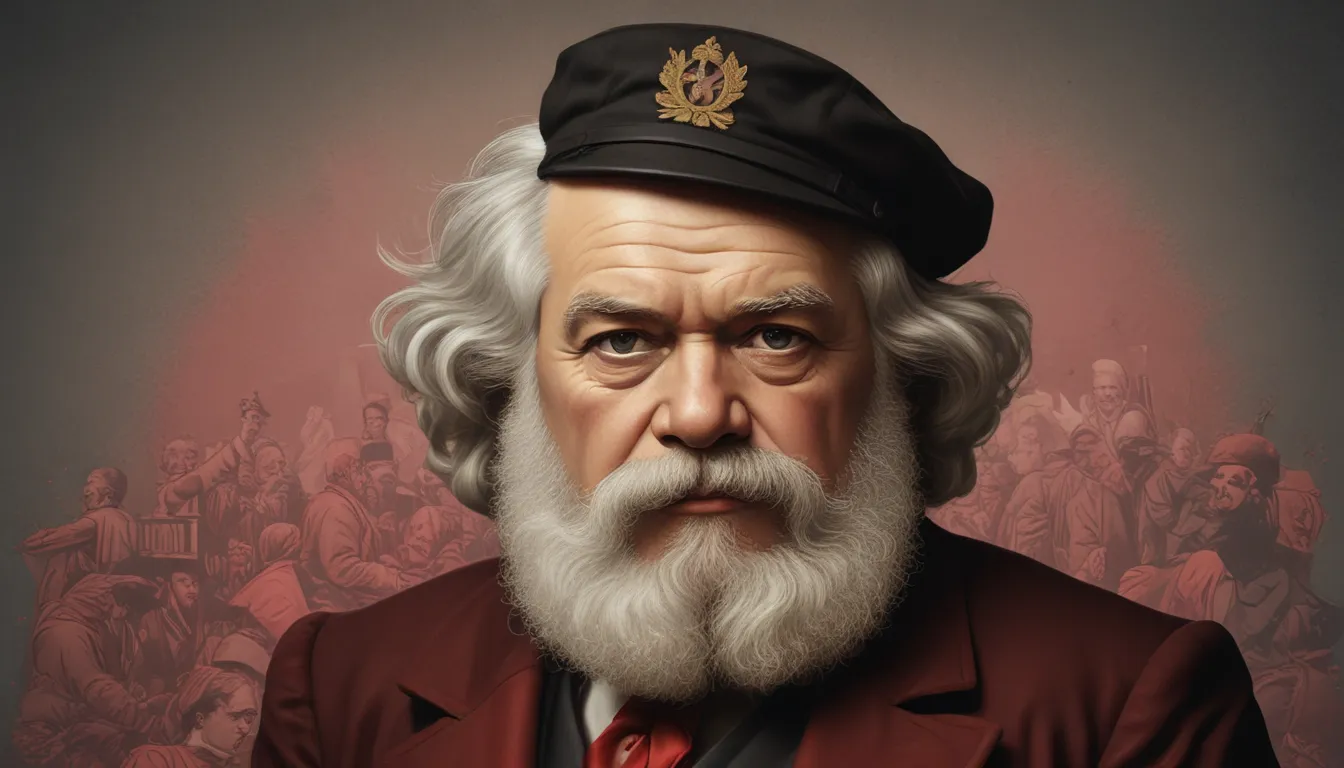The images in our articles may not match the content exactly. They are used to grab your attention, not to show the exact details in the text. The images complement the text but do not replace it.
Karl Marx, a prominent figure in the realms of politics, philosophy, and economics, remains a central figure in shaping our understanding of society. His profound influence continues to resonate across the globe, inspiring movements and sparking debates on class struggles, capitalism, and communism. In this article, we delve into 14 captivating facts about Karl Marx that illuminate his life, work, and enduring legacy. Whether you are a student of political science, a history enthusiast, or simply curious about one of the most influential thinkers of our time, these facts offer valuable insights into the world of Karl Marx.
Key Takeaways:
- Karl Marx, born in 1818, left a lasting imprint with his ideas on capitalism, class struggle, and socialism, which continue to shape modern politics and economics.
- Marx’s vision of a classless society and global revolution has inspired movements worldwide, fueling debates on alienation, capitalism’s downfall, and the essence of communism.
Birth and Early Life:
Karl Marx was born on May 5, 1818, in Trier, Germany, under the Kingdom of Prussia, where he began a journey that would redefine the way we view society.
Intellectual Contributions:
Marx developed the theory of historical materialism, a cornerstone of his critique of capitalism, which posited that societal evolution is driven by clashes between social classes striving for control over production.
Collaborative Works:
In 1848, Marx and Friedrich Engels co-authored “The Communist Manifesto,” a seminal work advocating for a classless society and the overthrow of bourgeoisie dominance by the proletariat.
Masterpiece Analysis:
Marx’s most renowned work, “Das Kapital,” also known as “Capital: Critique of Political Economy,” offers an incisive examination of capitalism’s structures, from labor dynamics to worker exploitation.
Predictions and Projections:
Marx prophesized that capitalism’s inherent contradictions, like labor exploitation and wealth concentration, would eventually lead to its collapse, paving the way for new social orders.
Philosophical Influences:
Drawing from Georg Wilhelm Friedrich Hegel, Marx integrated dialectical method into his analysis, shifting the focus to materialistic societal perspectives, accentuating economics and class struggles.
London Exile:
Marx spent a substantial period in London, where he sought refuge after facing expulsions in several European nations. Here, he honed his ideas and texts, nurturing the socialist and communist movements.
Transformative Impact:
Marx’s theories reverberate in political and social realms, fueling dialogues across philosophical, economic, sociological, and political disciplines.
Global Revolution Projection:
Marx envisioned a world proletarian revolution where the working class, known as the proletariat, would rise against the bourgeoisie, ushering in a socialist era and challenging private property concepts.
Socialist and Communist Proliferation:
Inspired by Marx’s insights, numerous socialist and communist parties took root globally, advocating for equitable social and economic structures through revolutionary processes.
Alienation Discourse:
Marx’s exploration of alienation highlighted how capitalism estranges individuals from their labor, products, and intrinsic human potential, underscoring the system’s dehumanizing effects.
Personal Struggles and Legacy:
Despite facing personal afflictions like financial woes and health challenges, Marx persevered, ingrained in his commitment to social change, which ultimately secured his place as a revered figure in history.
Continued Debates and Analysis:
Marx’s theories remain at the forefront of scholarly discussions, with ongoing criticisms and interpretations underlining his enduring relevance in comprehending contemporary social dynamics.
Passing and Posthumous Impact:
On March 14, 1883, Karl Marx drew his last breath in London, leaving behind a rich tapestry of ideas that have left an indelible mark on global philosophies and political narratives.
Conclusion:
In wrapping up, the legacy of Karl Marx endures, underscoring his pivotal role in reshaping socio-political paradigms. His critiques of capitalism, advocacy for socialism, and vision for a classless society transcend time, offering profound insights into the quest for a fairer world.
Frequently Asked Questions:
-
What are Karl Marx’s most acclaimed works?
Karl Marx is best known for his seminal works like “The Communist Manifesto” and “Das Kapital,” which elucidate his theories on societal structures and the imperative upheaval of capitalist systems. -
How did Marx perceive class struggle?
Marx’s theory asserts the dichotomy between the bourgeoisie ruling elite and the proletariat working class, predicting societal tensions and revolutionary shifts propelled by this inherent conflict. -
Was Karl Marx a proponent of communism?
Indeed, Karl Marx is hailed as a pioneer of modern communism, advocating for the rectification of capitalist disparities through the establishment of equitable, communal resource distribution. -
Did Marx endorse violent revolutions?
While Marx viewed revolution as a requisite step to dismantle capitalism and instate a communist model, his stance on violent means was not unequivocal, suggesting it as a response to systemic coercion. -
What encapsulates Karl Marx’s legacy?
Karl Marx’s legacy is a tapestry of varied interpretations, with his critiques of capitalism drawing distinct reactions from proponents and critics, signifying his lasting influence on global ideological landscapes.
Delving Deeper:
Throughout history, Karl Marx’s prodigious contributions have paved the way for dynamic conversations on economics, politics, and social justice, resonating with a diverse audience seeking to unravel the intricacies of societal structures. As we navigate the intricate web of theories and legacies, Karl Marx stands as a beacon of intellectual exploration and transformative methodologies that continue to shape our understanding of the world. Through a nuanced exploration of his life and ideas, we glean invaluable insights into a revolutionary thinker whose impact reverberates through time and space.






